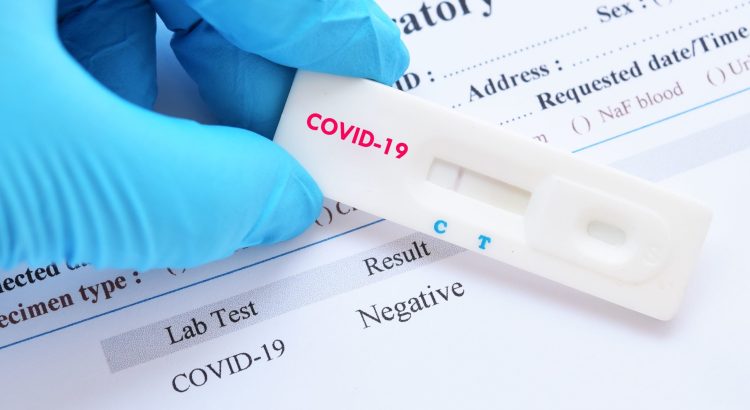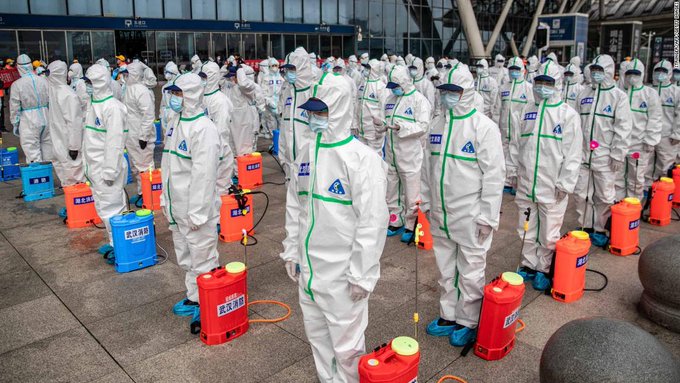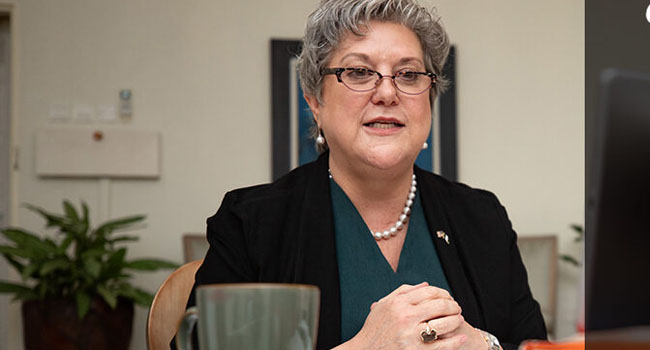Although the country is still undergoing phase 3 of gradual easing of lockdown which include worship services not lasting beyond an hour and maintaining social distancing in public gatherings as well as in buses, most people seem to have moved back into a state of pre-COVID normalcy.
In many areas of Lagos for instance, buses have started operating at full capacity, carrying the full load of passengers they used to carry before the lockdown while still charging the more expensive ‘COVID-19-induced’ fares. People have also stopped protecting themselves by wearing face masks while bus drivers and indeed law enforcement have since lost their zest for enforcing the protective measure.
All of these point to the fact that people are coming out of their shells eager for life to return back to how it used to be. While that may be so and while the number of people infected has reduced week on week, tests show that people are still getting infected with the coronavirus.
Over the last 7 days (September 21 to 28), 25,504 were tested for the virus and 1,023 positive results were recorded. The previous week, 40,064 were tested and 1,049 people tested positive. The number of positive cases for both weeks is identical even though fewer tests were carried out this week.
This means that the virus is still present and that a second wave of infections is possible. Therefore, social distancing, wearing of face masks and limiting public gatherings are still important for now.
These are the other important developments recorded this week as the world battles the dreaded virus.
Nigeria develops 40-minute test kit


A new Covid-19 test kit has been developed by the Nigeria Institute of Medical Research (NIMR). According to the minister of state for health, Olorunnimbe Mamora, the kits are ten times cheaper than the existing PCR kits that are used for the diagnosis.
Compared to the Reverse Transcription- Polymerase Chain Reaction (RT-PCR) aka PCR which takes several hours to deliver results, the new kits can produce results in 40 minutes and are, therefore, also much faster.
Mamora said, “The Nigeria Institute of Medical Research has developed a molecular test for COVID-19 that can give results in less than 40 minutes. It is the SARS-COV-2 Isothermal Molecular Assay (SIMA) which can be performed by low skilled personnel with minimum training.”
Testing in Nigeria has been low despite the teeming population mainly because the PCR kits were imported from other countries and the reagents needed to carry out tests were also not sufficiently available. The newly-developed test kits can significantly change that.
CBN introduces medical researches and drug manufacture fund


The CBN has introduced a new fund called the Healthcare Care Sector Research and Development Intervention Scheme (HSRDIS). This is to reduce Nigeria’s dependency on other nations for critical drugs and vaccines as well as encourage medical research and drug manufacturing.
The fund is to chiefly help in the fight against COVID-19 pandemic by financing activities to develop a Nigerian vaccine, drugs and herbal medicines and medical devices against the spread of COVID-19. The research is also targeted at other communicable and non-communicable diseases.
Outlining an action plan, the CBN said, “This will be done through the provision of grants to biotechnological and pharmaceutical companies, institutions, researchers, and research institutes.”
A body of experts will review each application and evaluate submitted proposals. A maximum of N50 million can be awarded for research activities while N500 million can be awarded for development and manufacturing.
The grant disbursement will be made in tranches in line with the milestones achieved for each project.
The scheme will be funded from the development component of CBN’s Micro, Small and Medium Enterprise Development Fund (MSMEDF), according to the CBN.
WHO approves China vaccine for experimental use


At a news conference on Friday, China’s Health Commission official, Zheng Zhongwei announced that the World Health Organization (WHO), had given approval for the use of its vaccines. The vaccines are to be used experimentally while phase 3 clinical trials are going on.
The vaccines can not be certified safe and effective until phase 3 trials have been completed and the results examined. However, hundreds of thousands of essential workers, as well as limited groups, have already been injected with the vaccine while the trials continue.
Although it was only recently announced, the official said the vaccine had been approved since June.
“At End-June, China’s State Council approved a plan of COVID-19 vaccine emergency use program. After the approval, on June 29, we made a communication with the relevant representatives of the WHO Office in China, and obtained support and understanding from WHO,’’ Mr Zheng said.
So far, there haven’t been reported cases of negative reactions or overwhelming side effects attributed to the vaccines, however, its efficacy can only be determined after the trials.
US citizens wary of their own vaccines


Polls from the last two months have shown that the majority of Americans are wary of the vaccine approval process being followed by the US Centers for Disease Control and Prevention (CDC). A third of the respondents said they would not get inoculated with the vaccine.
To guarantee people’s safety after being administered the vaccines, the CDC announced at the meeting of its Advisory Committee on Immunization Practices, that the first set of Americans who get the doses of the first Covid-19 vaccines will be closely monitored. This will happen through daily text messages from their smartphones.
As is the practice with most vaccine trials, essential workers will be the first recipients of the vaccines. They will be contacted daily via text messages to know if they experience any side effects in the first week after they get the shot.
After the first week, they will be contacted once a week for 6 weeks to monitor the effects of the vaccine. The recipients of the vaccine can opt-out of the smartphone program and opt back in if they choose. The essential workers in view are about 20 million people, according to a CDC immunization expert, Tom Shimabukuro, at the meeting.
US donates $2.1 million for the conduct of COVID-19 survey in Gombe, Enugu and Nasarawa states


The US CDC has donated $2.1 million to Nigeria for carrying out a household survey to determine the extent of COVID-19 transmission in Gombe, Enugu, and Nasarawa states.
The survey will determine the percentage of people in the three states that have been infected with the coronavirus.
Part of the statement issued by the US Mission in Abuja reads, “This will be accomplished by measuring the presence of antibodies against SARS-CoV-2 in the blood of volunteers.” The survey will be conducted between September and November while the first set of results will be released by December.
With the results, health officials will also be able to monitor the potential relationship between malaria and the SARS-CoV-2 virus as well as determine the rate of intra-household transmission of the virus.






